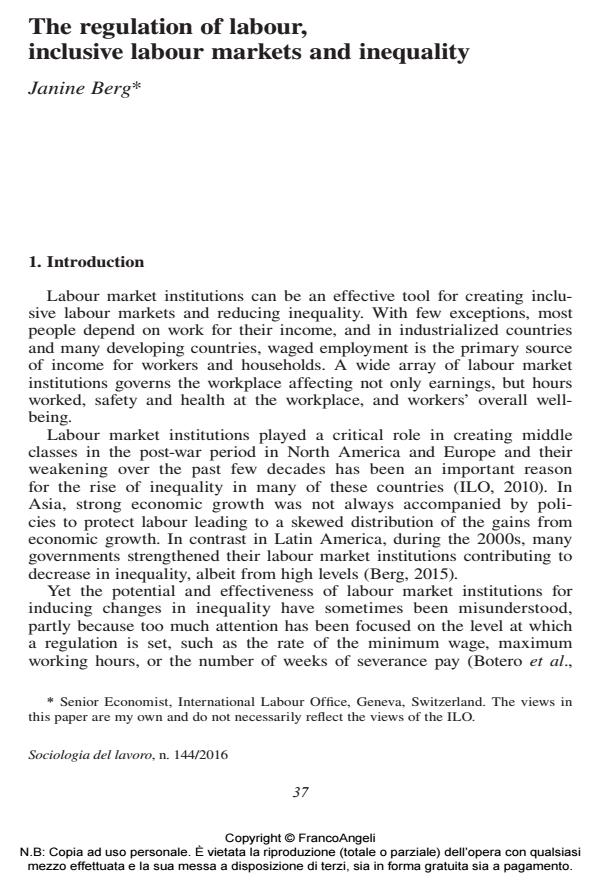The regulation of labour, inclusive labour markets and inequality
Journal title SOCIOLOGIA DEL LAVORO
Author/s Janine Berg
Publishing Year 2016 Issue 2016/144
Language English Pages 18 P. 37-54 File size 137 KB
DOI 10.3280/SL2016-144004
DOI is like a bar code for intellectual property: to have more infomation
click here
Below, you can see the article first page
If you want to buy this article in PDF format, you can do it, following the instructions to buy download credits

FrancoAngeli is member of Publishers International Linking Association, Inc (PILA), a not-for-profit association which run the CrossRef service enabling links to and from online scholarly content.
This article advances a simple analytic framework to address issues of the design of labour market regulations as well as raise awareness of how these regulations are continuously affected by transformations in the world of work. While the role of labour market regulations in ensuring more inclusive labour markets and reducing inequality is critical, its influence will depend on aspects besides just the ‘level’ at which protection is set. As a result, policies to strengthen labour market institutions should also consider issues of coverage and compliance when choosing which policies to prioritize and how to design policy reforms.
Keywords: Labour markets, inequality, regulation of labour
Janine Berg, The regulation of labour, inclusive labour markets and inequality in "SOCIOLOGIA DEL LAVORO " 144/2016, pp 37-54, DOI: 10.3280/SL2016-144004